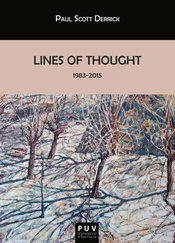They are going to see the remastered print of Fantasia , the Walt Disney animation. First he bought sweet popcorn from old Pestana, whose little cart is right at the door to the cinema; the old man loves telling the unwary that in the sixties he was an employee of the Piratini Steel Company and one of the sixty thousand activists from the so-called Group of Eleven set up in sixty-three by Brizola to bring about the socialist revolution in Brazil. He says he’s read every book by Tolstoy translated into Portuguese and, invariably, he ends the conversation with a mild rant on the evils of alcohol (the damage it does to the liver and the pancreas, the disarray it causes to a routine, to social composure) despite the fact that he is quite evidently an alcoholic himself. Naturally, as he has known Paulo for some time (and he can recognise when he’s unlikely to find an opening for his tired old digressions), the old man doesn’t even start his litany, though as he hands the bag of popcorn to Maína he does say that she is a true jewel of the Brazilian El Dorado.
Paulo tries to describe to her what the experience is going to be like. The images being projected, the moment when the mouse will command all the things and the sounds of the universe. Maína is barely listening. The film has caught her attention, the soundtrack, the colours, the introductions, the stories. He got lucky with the programming: only The Wizard of Oz might have topped it (he is sure that ‘Somewhere Over the Rainbow’, in Judy Garland’s devastating interpretation, would change that girl’s life); he’s lucky she didn’t get scared. The film ends. The two of them wait till the light from the projector and the music are switched off. They look at one another. He takes in the girl, all kitted out like a punk-goth with her seed necklace over the fabric of the AC/DC t-shirt and the smell of Phebo Rose soap, sat in the dirty red leather seat of the Baltimore with her canvas bag full of damp pages from newspapers and magazines, fresh from the experience of an invisibility hitherto unknown to her, allowing herself to look, and looking. Perhaps there’s some kind of answer there. Paulo knows there is, but he can’t do it, it’s hard to make out.
He explains that they’re going to a party. There will be some odd people there, the kind of people she probably hasn’t been around before. Maína nods her head, showing that she’s happy, that everything’s fine. She says she needs to go to the bathroom, he shows her where it is and waits under the awning in front of the building. And he catches sight of Titi Mafalda with her friends, the three Marias, in tow. ‘Hey, senhor Dickhead!’ she shouts from a distance in her unmistakable Ceará accent. ‘Still hanging out in that art-house cinema, then? Standing there with those panty-wetting legs of yours and all these girls going to waste … You men are all complete asses, you really are.’ Not long ago at all, Paulo had gone out with Maria Rita, the prettiest of the four. Although they’d only hung out a few times, which had been fun to begin with, things hadn’t ended well; on the first and only occasion they arranged to go to Fin de Siècle to dance and meet their friends, breaking with the movie-then-dinner-then-her-flat formula, it had been a disaster. It only took half an hour for them to end up standing outside the nightclub, Maria Rita — who without her doctor’s permission had stopped taking her antidepressants — completely overcome with hysterics, gnawing at the palm of her right hand till she bled, him trying to stop her, her going back to the self-harming the moment he released her. They carried on this little performance till Paulo let go of her, telling her to go to hell, and went back into the bar. He learned days later that she had spread the word to everyone that he’d given her gonorrhoea, which everyone realised, knowing her as they did, was another one of her lies. ‘Hey, it’s the Northeastern girls,’ says Paulo, needling them already, as the four of them come to a stop in front of him. ‘You all right, Rita?’ She nods, lets out a restrained smile. ‘Come with us to have a few at the Magazine Bar. I’m heading there to see if I run into Passo Fundo; the Gaucho bastard owes me two thousand and it’s been an age … ’ Titi says brashly, with an attitude in marked contrast to the lethargy of the other three. ‘Can’t do it, Titi, I’m going to a party,’ Paulo explains. ‘Whose?’ she wants to know (she always wants to know). ‘Adrienne’s … ’ he replies a little awkwardly, remembering that the two of them never really got on. ‘So come here and give me my three kisses.’ Just like she asks everyone else, she always asks him for her three kisses (three times, it’s the southern excess, she enjoys this). When Titi approaches to kiss him, Maína appears and stands beside Paulo. Titi is quick to react. ‘Who’s this child, Paulo?’ she asks, looking Maína up and down. ‘She’s come to visit Porto Alegre,’ he says naturally. ‘And you’re her guide?’ asks Maria Rita, pointedly. ‘It’s only for today … Maína, these are my friends.’ Maína just smiles. Titi knows Paulo well enough to be sure that the best thing to do right then is to take her Marias and go. ‘We’re off, Handsome,’ and she gives him three kisses. ‘Watch how you go, ok? This girl can’t even be twelve yet … You trying to break the record of the local rock stars? Trying to be like Brando the rapist? Take it easy, Paulão.’ Maria Rita doesn’t wait, she walks off without saying goodbye. Maria Eduarda and Maria Clara just nod and follow Titi as soon as she heads back off towards the Magazine. ‘Give Passo Fundo a hug from me,’ Paulo says before the girls are too far off. The two of them step onto the pavement and set off in the opposite direction to Titi. They walk a few metres, and Maína stops when she sees the popcorn seller (who by now has stored away his little cart) sitting on the front step of an office building, drinking straight out of the mouth of a cachaça bottle, past the point of recognising her. She places the bag of magazines into Paulo’s hand and approaches the old man, puts her hand on his head. Paulo leaves her to it, leaves their moment to pass.
He walks into the apartment telling everyone that there is to be no messing around with Maína: no alcohol, no coke, no weed for her. He doesn’t leave her alone for a minute. As soon as the group who were on the balcony vacate the place, he invites her to sit there and look out over the city. ‘Pretty,’ says Maína, ‘light, lot of light’. Paulo doesn’t hold back. ‘Chaos, Maína.’ He doesn’t even know if she knows what chaos is. ‘It’s a pretty place, but not always a good one.’ Luana appears with a tray of savoury pastries, Maína takes two. ‘You sure she isn’t up for smoking just a little one?’ and gives him a wink. Luana, always Luana. Paulo gives her a get-out-of-here look. Luana turns around. Adrienne has spread posters of Fernando Collor de Mello, the National Reconstruction Party’s candidate for president of the Republic, all over the living room and she refuses to explain this décor; Adrienne and her eccentricities. The soundtracks of her little parties are limited to Brian Eno, Roxy Music, Talking Heads, The Doors, Velvet Underground, King Crimson and Kraftwerk. So long as he respects the magnificent seven, as she’s dubbed them, a guest is free to put on any music he chooses. Paulo likes hanging out with this crowd, it’s good being a part of the group without actually being one of the group; it’s less hard work, less stressful. Paulo doesn’t find it easy being involved with groups or people for too long. Everyone there is teeming with ideas and plans; no doubt at all that at least half of them, ten or fifteen years from now, are going to be calling the shots in Rio Grande do Sul and the rest of the country. In the meantime they’re no more than a gang of stoners who think they’re the shit. Paulo is waiting for the mini-gig by the band Vulgo Valentin that has been promised for midnight on the dot but that ends up only happening at half past one. (Adrienne loves to torment her neighbours, always with the same strategy: the mini-gigs get going and only finish when the police turn up asking them to put an end to the performance. ) As soon as the boys finish playing — this time it is the woman who manages the building who has switched off the apartment’s power mains and is now giving Adrienne the biggest lecture at the door to the apartment — Paulo calls Maína and they leave. The chosen route is: down Independência, onto Riachuelo, past the town hall and then the old Gasômetro factory, back along Duque de Caxias, then taking Borges at Demétrio Ribeiro, on as far as the beginning of Veríssimo Rosa, turn left, turn right, arrive home.
Читать дальше












